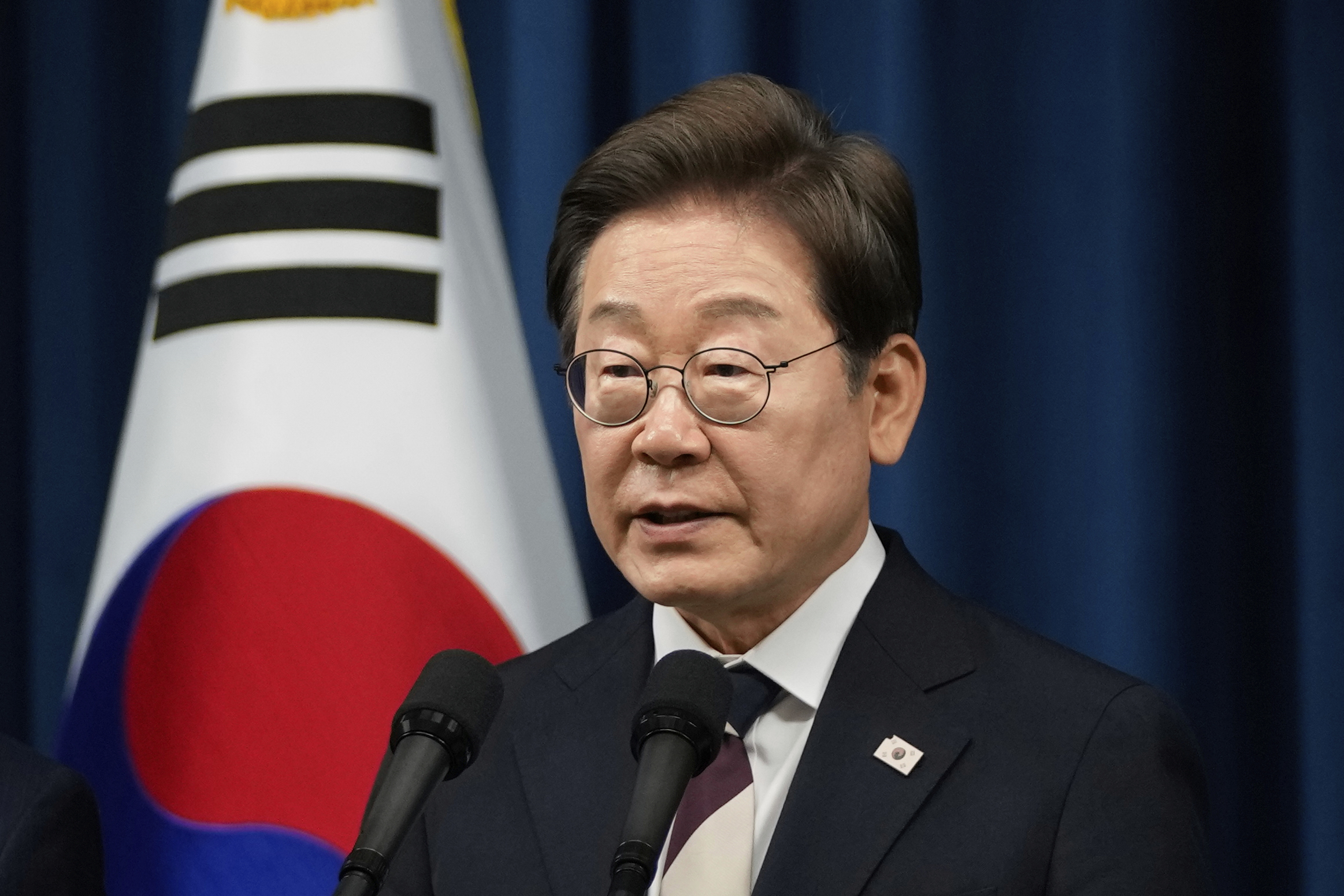It was a cold morning in January 2024 in Busan, a coastal city in the southeast of South Korea. Lee Jae-myung (61 years old), the opposition leader, was visiting a construction site at the port when a man approached him apparently to ask for an autograph. Suddenly, the man lunged at him with an 18-centimeter knife and stabbed him in the neck. Lee collapsed to the ground, and one of his companions quickly pulled out a handkerchief to apply pressure to the wound. The attacker tried to flee but was detained by the crowd that had gathered to support the politician at that event. A few hours after being airlifted to the hospital, the medical team announced that, after an emergency procedure, Lee was stable and had suffered a one-centimeter laceration on the left side of his neck.
Just over 11 months after surviving the stabbing, local television images captured the moment when Lee jumped over the Parliament fence, besieged by the military sent by then-President Yoon Suk Yeol after declaring martial law that granted exceptional powers to the army. Lee, leading the Democratic Party (DP), quickly called on lawmakers from his party to immediately go to the chamber, forcibly bypassing the soldiers' control if necessary, who had orders not to let anyone in, and overturn the authoritarian decree with an emergency vote. A message that spread widely on social media and prompted a furious crowd to march to the Parliament to defend democracy.
For many South Koreans, Lee was one of the heroes who managed to stop Yoon's short-lived martial law. It was later revealed that his name was on the list of opposition politicians to be arrested after the coup. This further boosted the popularity of a human rights lawyer who in 2022 lost the elections to Yoon by a narrow margin and has just achieved his revenge by being elected the new president of the fourth largest economy in Asia.
After surviving an assassination attempt, being a mayor, provincial governor, opposition leader, and overcoming several corruption cases, Lee won the elections on Tuesday with 49.42% of the votes, surpassing the 41.15% obtained by former Labor Minister Kim Moon-soo, the candidate of the conservative People Power Party (PPP). With this overwhelming victory, he will assume office as one of the most powerful presidents of South Korea in recent decades.
"We will overcome the insurrection and ensure that a military coup threatening the people never happens again," Lee said in his Tuesday night speech in front of the National Assembly.
Prior to martial law, no one was betting on this veteran left-wing leader, who had just been convicted for false claims that he had never played golf with an executive of a company involved in a controversial urban development project in Seongnam during his time as mayor of the city. The sentence was later overturned, allowing Lee to run for elections.
The biggest institutional crisis in decades brought Lee back into the presidential race, where he once again showcased his personal story of overcoming adversity. From a very poor background, he was raised in Andong, a town in the mountains of Gyeongbuk province, in a family of seven siblings who moved to Seoul to live in a semi-basement shed, similar to the acclaimed movie Parasite, in a marginalized neighborhood of the capital. His parents made a living by collecting garbage and cleaning public restrooms. After finishing elementary school, Lee worked in a baseball glove factory and then in various underground workshops.
"My miserable life has given me the strength to persevere through difficulties," he recounted in his memoirs. Although he never attended high school, Lee passed the university entrance exams and was able to study law on a scholarship. He then spent two decades as a human rights lawyer and activist before entering politics as the mayor of Seongnam in 2010, where his welfare policies were very popular and eventually led to his election as governor of Gyeonggi province.
Throughout his life, Lee has been pursued by both triumphs and scandals. In 2004, he had an accident while driving drunk, and the South Korean press reported serious family disputes with his siblings and an extramarital relationship. He is currently facing charges of corruption, bribery, and abuse of power related to a land development project in 2023. The last presidential debate was marked by intense scrutiny over accusations against Lee for allegedly making illegal cash transfers to North Korea that would have violated UN sanctions against Kim Jong-un's regime.
The most important task facing the new leader is to mend the huge social division inherited from the authoritarian chaos caused by his predecessor. Throughout the campaign, Lee proposed reducing the risk of a new political crisis by limiting the leader's powers to two terms of three or four years - compared to the current five-year term - and decentralizing responsibilities.
In foreign policy, Lee has committed to reducing tensions with North Korea, reestablishing the military hotline that Pyongyang severed a couple of years ago. In his first words as president, he stated that his administration would ensure deterrence against Pyongyang with strong military capabilities but prioritize peaceful relations. This would represent a change from the previous government of Yoon, during which relations with Pyongyang remained hostile. "With the certainty that achieving peace, we will seek inter-Korean dialogue and find a path to coexistence," he emphasized.
Lee has also pledged to continue strengthening the traditional alliance with the United States. On Monday, he stated that one of his priorities would be trade negotiations with Washington. "If necessary, I will even crawl at the feet of President Donald Trump," said the new president of a country that wants to leave behind six disastrous months of political chaos.
